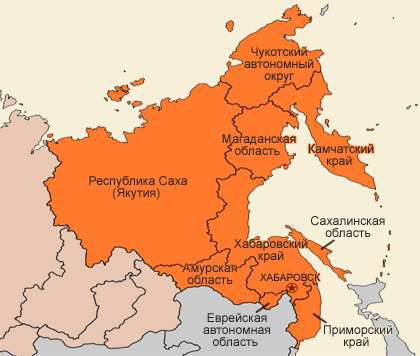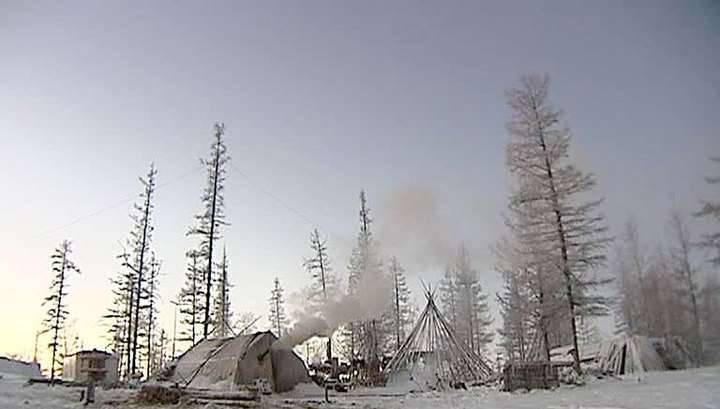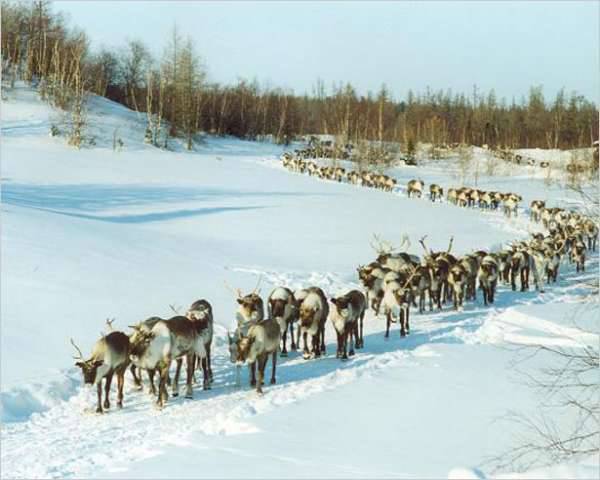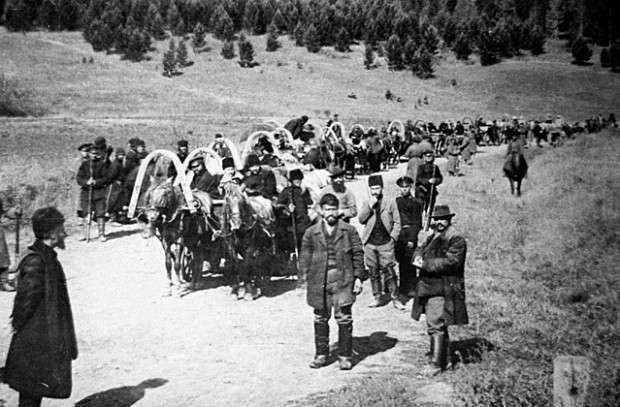Far Eastern hectare. Will the new law help to master the Far East?
 The purpose of the adopted law is to ensure the further development and settlement of the Russian Far East. It is known that the region, despite its colossal areas, is one of the least populated in the Russian Federation. In the future, the small population of the Far East and the lack of development of its land not only hinder the economic development of the region, but also pose threats to the national security of the country, since vacant land will inevitably arouse the interest of neighboring states, above all - overcrowded China. The opportunity to get a hectare of land per citizen for free, according to Russian politicians, will be an additional incentive for the development of the Far East.
The purpose of the adopted law is to ensure the further development and settlement of the Russian Far East. It is known that the region, despite its colossal areas, is one of the least populated in the Russian Federation. In the future, the small population of the Far East and the lack of development of its land not only hinder the economic development of the region, but also pose threats to the national security of the country, since vacant land will inevitably arouse the interest of neighboring states, above all - overcrowded China. The opportunity to get a hectare of land per citizen for free, according to Russian politicians, will be an additional incentive for the development of the Far East. The law on the “Far Eastern hectare” has already been called the new Stolypin reform. As you know, in the early twentieth century. The agrarian reform initiated by the then head of the Russian government, Peter Stolypin, envisaged, among other things, mass resettlement of peasants from the European part of Russia to sparsely populated and practically undeveloped regions of Siberia, the Far East, and Northern Kazakhstan. Only in the period from 1906 to 1914. migrated to Siberia from the European part of Russia 3 040 333 people. Although 17% of immigrants subsequently returned, as they did not like the new place, the remaining 83% of immigrants settled on Siberian and Far Eastern lands.
In fact, it was thanks to Stolypin’s reform that vast territories in the Far East and Siberia were settled, since in only eight years from 1906 to 1914. 1,7 had more migrants there than in the previous forty-plus years — from 1861 (year of serfdom abolition) to 1905. However, it should be noted that Russia's socio-economic and socio-cultural development in the early 20th century, when PA carried out his reform. Stolypin, and at the beginning of the XXI century, when the Russian authorities once again attended to the issues of settling the Far East, are significantly different. At the beginning of the twentieth century. in Russia there was an impressive human resource - the peasants of the overpopulated provinces of the European part of the country. These were people accustomed to agricultural work and, by and large, had no special prospects in their own provinces. Granting land in the Far East and Siberia was a chance for them to start a new life, albeit a complex one, full of dangers, but with the hope of improving their financial situation in the future.
Now we are seeing a completely different situation. Therefore, the law on the “Far Eastern hectare,” although it met with warm support in the State Duma and from the country's president, at the same time raises many questions. First, the legal status of lands is not very clear. Only after five years can a citizen rent or purchase his hectare. But who will guarantee that the state will not take this land back, despite the fact that a person has invested time, effort, money in its processing? Secondly, it is quite embarrassing for many and the area of land provided is one hectare. For building a house and arranging a garden plot with a garden and a kitchen garden, a hectare of land is more than enough. But for agricultural production it is an absolutely insignificant area. Unless agricultural farming is understood as horticulture, horticulture and poultry farming in order to feed one family. But if the plots are allocated to people so that they feed only themselves, then what is the point of the planned project? On the economy of the Far East, it still will not affect.

An important point - and the question of the development of the necessary infrastructure. By signing the law, President Putin demanded to allocate land where it is possible to ensure the availability of modern infrastructure. However, even in the European part of Russia, not all populated areas are provided with water supply, sewage or, at least, gas supply. The only type of housing and communal infrastructure that is present everywhere is the very “light bulb of Ilyich”, electricity, which the Soviet government tried to provide for all of Russia. In addition, if the government intends to attract families with children to the Far East, then the question arises of providing the migrants with affordable kindergartens, schools, out-of-school educational institutions, polyclinics and hospitals. Of course, all these institutions will also need to be staffed with qualified personnel, and the shortage of teaching and medical personnel is also an acute problem for rural areas in the European part of Russia.
Having passed the law on the “Far Eastern hectare”, the Russian authorities, nevertheless, cannot answer the main question - who will go to the Far East to develop the allocated land and what will be the main incentive for the immigrants? Living conditions in modern society are fundamentally different from the Stolypin times. Today, it is rarely what kind of person is capable of not going to develop the lands of the Far East - just moving from town to village, even within one’s own region. For example, in the south of Russia, real estate prices in rural areas are very low, if not to say - penny. For 200-250 thousand rubles, and this is a very small amount, you can purchase a whole household in rural areas of the Rostov region. But even for so little money, no one is in a hurry to move to the countryside. The exception is the ethnic diasporas, which still retain traditional foundations and a different mentality. Therefore, in many localities, Meskhetian Turks and Gypsies constitute a significant part of the population, and Kurds and Yezidis in the Krasnodar Territory. According to a number of media reports, a few years ago, Dungans, Chinese Muslims living in large numbers in Kazakhstan and Kyrgyzstan, began to move to the Saratov region. But even in rural areas they do not linger - so, the children of wealthy Meskhetian Turks from the same Rostov region already enter higher education institutions of the regional center and remain in the cities. Note - we are talking about the settlements of the Don, Kuban, Volga region - that is, about the fertile and located in the European part of Russia regions. What, then, is to wait for the Far East, where one trip per family can be compared to the cost of a small house in some Voronezh or Volgograd village?
According to Alexander Galushka, Minister for Development Affairs of the Far East, the law on “Far Eastern hectares”, passed by the State Duma of the Russian Federation, provides young Russians with a chance for self-realization in the Far Eastern regions and territories of the Russian Federation. A citizen may carry out any activity permitted by Russian law in the area he has chosen. According to Nikolai Pankov, chairman of the State Duma Committee on Agrarian Issues, representatives of 30 categories of Russian citizens, including veterans, large families, teachers with 10-15 experience, farmers, distinguished workers with state awards, will be able to get free use of land in the Far East. many years of work. Particularly interesting in this list is the category of veterans. This is how 90-year-olds seem to be old veterans of the Great Patriotic War, traveling to the Far East to cultivate hectares of land allocated to them. Massive relocation to the Far East of large families is also doubtful, if not to speak about yesterday's visitors from the countries of Central and East Asia. However, a teacher with 10-15-year experience, who suddenly decided to “jerk” to the Far East and retrain from teacher to farmer, is an isolated phenomenon. At the same time, the right to apply for a hectare of land will be obtained by those citizens who do not belong to the listed categories, but plan to work on the land. According to the All-Russian Center for the Study of Public Opinion, the adopted law aroused considerable interest among Russian citizens. Most of them are interested in young people aged 18-24 years. Every fifth respondent admits for himself the opportunity to participate in the program and possible relocation to the Far East. Another thing is whether young Russians will retain their optimistic attitude when they become familiar with all the peculiarities of life in remote areas of the country. But so far, sociologists, officials, and representatives of political parties are silent about this.
By the way, the idea of allocating a hectare of land to everyone who wanted was very agitated by the local population. In particular, in Yakutsk, back in December of last 2015, a picket was held to postpone the start of the implementation of the bill in the Sakha Republic. Participants of the picket came out with posters "No to raider seizure of land," "Vouchers, free hectares, and what's next, gentlemen oligarchs?". The protests were caused by the fears of the residents of Yakutia that, due to the distribution of "Far Eastern hectares", the local population could be left without land. In April, 2016 residents of Yakutia again demanded not to extend the action of the adopted bill to the territory of the republic.

Natalya Zubarevich, director of the regional program of the Independent Institute for Social Policy, believes that of those regions of the Far East that became the “pioneers” of the “Far Eastern hectare” project, only three districts are suitable for farming - in the Primorsky Krai, the Amur region and the Jewish Autonomous Region. In other areas, it is practically impossible to conduct agricultural agriculture. The only thing for which they can be used is for breeding deer or shaggy Yakut cows.
A writer Eduard Limonov, the leader of the non-parliamentary party The Other Russia, made his own view on the program of the “Far Eastern hectare”. Firstly, Limonov criticized the scale of the program being implemented, since the hectare of land per person, according to the writer and the politician, is a very small area to talk about the real development of the region in the agricultural aspect. Secondly, Limonov wondered who would go to develop new lands and came to the conclusion that in modern Russia one could return the institute of exile. Persons who have committed minor crimes can get the opportunity to go to the development of Siberia and the Far East. Literally quoting Limonov, "who stole jeans, a bottle of vodka or wire, fighters convicted under the article" Hooliganism "will become exiles on our vacant lands close to China." But one can hardly agree with Limonov. In modern society, the economy of the region will not be lifted up by exiled settlers. Marginals convicted of fights or petty theft, at best, can somehow feed themselves from the garden or hunting. And this is only the first argument in the endless list of objections to such an initiative.

Undoubtedly, the problem of settling the Far East needs to be addressed, and moreover, as efficiently and quickly as possible. But is it worth creating the illusion of this decision by proposing sufficiently controversial programs and initiatives? First of all, in the Far East it is necessary to create jobs with higher wages than on the mainland, as well as to create a full-fledged social and residential infrastructure. Only in this case will the inflow of immigrants from other parts of Russia to the region be ensured. Otherwise, whether handing out free hectares of land or sending expatriated alcoholics and hooligans to the development of the Far Eastern territories, these measures will not lead to any positive result.
When a large number of workplaces are created in the Far East for specialists of various profiles, from software engineers to primary school teachers, when decent living conditions will be created, implying the availability of normal infrastructure and “human” ticket prices to the European part of Russia, then people they themselves will reach for the region - for higher wages, for preferential housing, and finally - for the possibility of faster career growth. And the development of the lands of the Far East for the purpose of agricultural production is better done by agrarian enterprises than by settler gardeners. At the same time, enterprises developing the lands of the Far East should receive appropriate state benefits or even subsidies that allow them to expand their activities in the region from scratch. As for veterans, honored teachers and large families, it is better for them to give out land where there is a full-fledged infrastructure, because the pioneers of these categories are not very good, but they fully deserve good plots with developed infrastructure.
Information